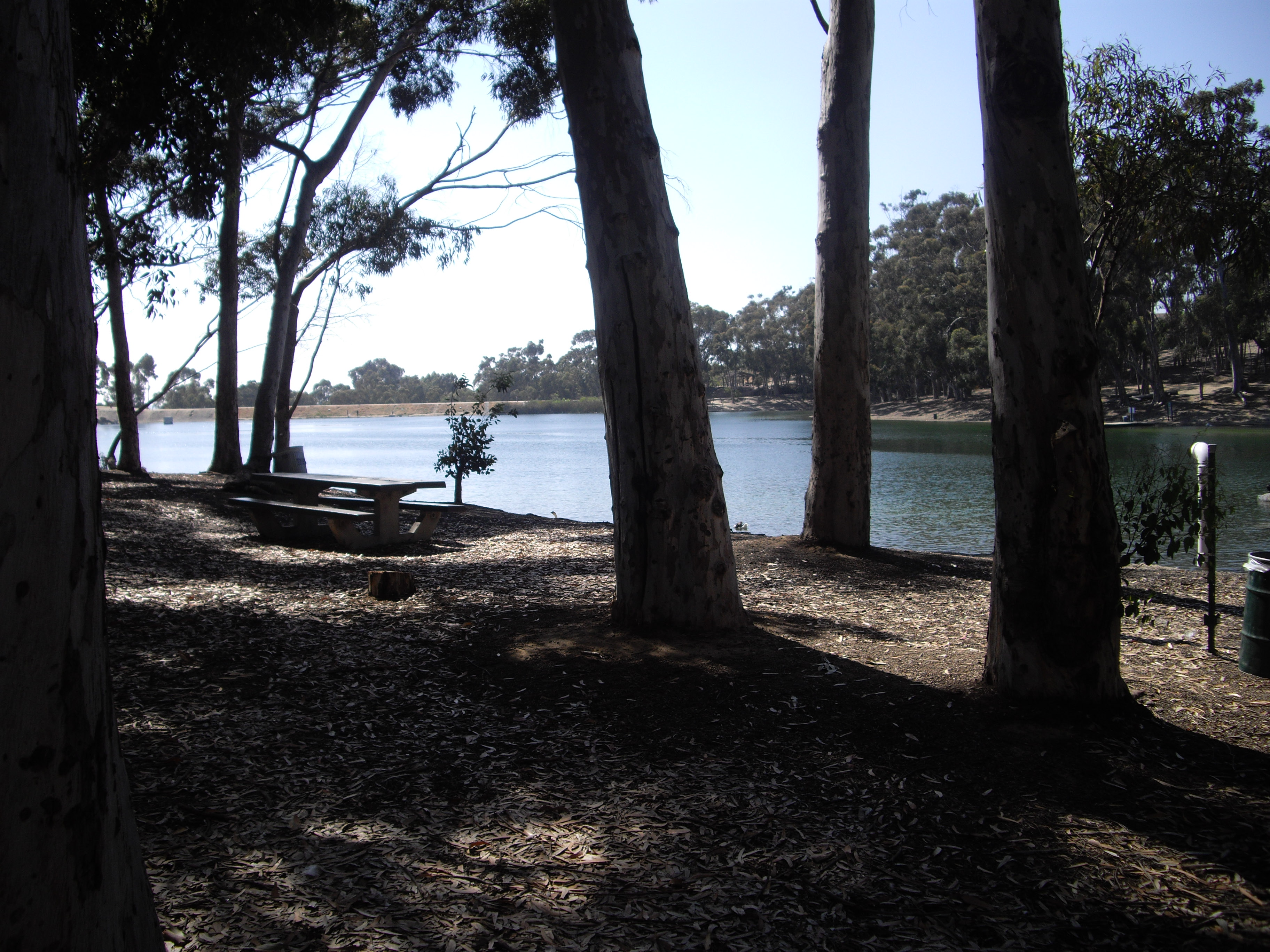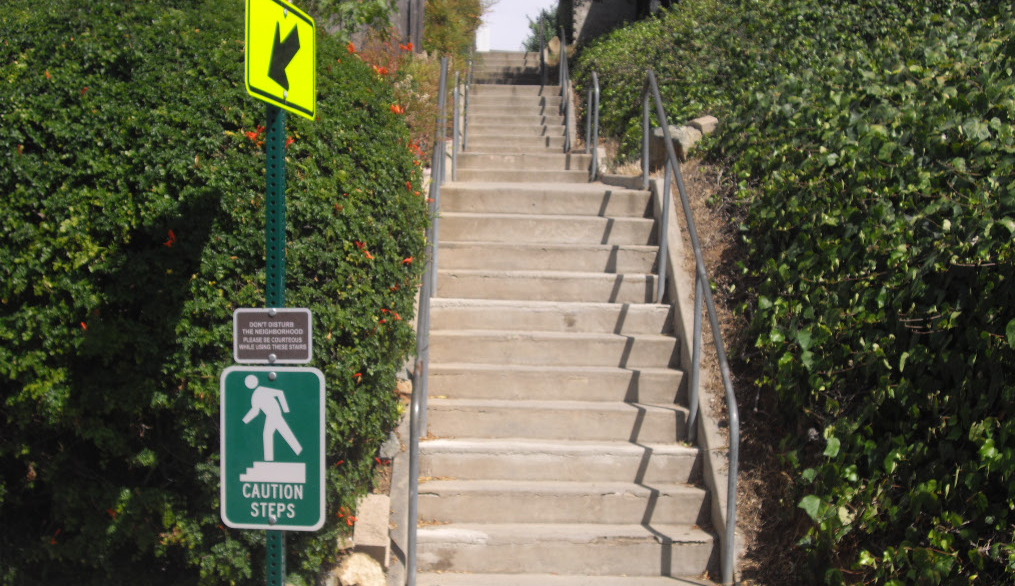Did you know over 10,000 locals have visited the La Mesa secret stairs annually, yet their exact path remains a mystery to many? Hidden in plain sight, the La Mesa secret stairs are nestled within charming residential streets, winding through history and offering urban adventure right in the heart of San Diego County. Whether you’re a fitness enthusiast, an urban explorer, or simply curious about this local phenomenon, unraveling the mystery behind where are La Mesa secret stairs means discovering a unique blend of scenic views, storied neighborhoods, and timeless community spirit. In this comprehensive guide, we’ll walk you through the stairs’ precise locations, what to expect, and why these hidden steps matter to so many La Mesa locals and visitors alike.Unveiling the Mystery: Where Are La Mesa Secret Stairs Located?The question, where are La Mesa secret stairs, is one that intrigues both newcomers and longtime San Diego residents. While whispers about “hidden steps” have circled the city, the true location of these urban stairs isn’t marked by neon signs or grand entrances. In fact, their greatest allure is that their start and end points weave quietly through the hillsides of La Mesa, specifically near serene neighborhoods lined with classic Southern California craftsman homes and mature oak trees. You’ll primarily find the La Mesa secret stairs near Windsor Drive, Summit Drive, and Beverly Drive—core entry points that are often overlooked by passing cars or first-time explorers. These stairs are famously dog friendly, easily accessible, and conveniently tucked within walking distance of local cafes and the bustling heart of La Mesa Boulevard.Exploring from the intersection of Windsor Drive and Canterbury Drive, you’ll begin to spot stairway entry markers discretely placed between homes or concealed by foliage. The set of stairs rises up winding slopes, interrupted by two cross streets and continuing upwards toward the top of Summit Drive. Thanks to La Mesa’s compact layout, the stairs’ entry points are no more than a few minutes from key landmarks like the La Mesa Village, Fairview Avenue, and even the iconic Mount Nebo. Each visit offers a different experience—especially as scenic views unfold while ascending towards the top, giving visitors a glimpse over the city of La Mesa, greater San Diego, and even the distant hills that cradle this corner of Southern California."Did you know over 10,000 locals have visited the La Mesa secret stairs annually, yet their exact path remains a mystery to many?"What You’ll Learn About Where Are La Mesa Secret StairsThe precise location and entry points for the La Mesa secret stairsWhat makes the secret stairs in La Mesa a sought-after urban hikeTips and safety considerations for first-time visitorsFAQs about the La Mesa secret stairsLa Mesa’s Secret Stairs: A Unique Urban LandmarkA Brief Overview of La MesaLa Mesa, fondly called “The Jewel of the Hills,” is steeped in community tradition and scenic charm. Nestled just east of downtown San Diego, La Mesa offers a mix of suburban tranquility, vintage architecture, and vibrant shopping and dining options on La Mesa Boulevard. The city’s hilly topography has provided an ideal setting for unique walking paths and staircases—such as the elusive La Mesa secret stairs. Residents value outdoor living here, from the beautiful views atop Mount Nebo to the quaint parklets dotting the neighborhood.What sets La Mesa apart within San Diego County is its emphasis on walkability and preserving small-town character. Popular local streets like Windsor Dr, Summit Drive, and Beverly Drive interconnect, forming a tapestry of routes for joggers, dog walkers, and curious stair-seekers. As you explore where the La Mesa secret stairs are, you’ll experience not only a good workout but a journey through historic neighborhoods and leafy avenues that speak to the city’s enduring allure.The Rise in Popularity of the Secret StairsOver recent years, the secret stairs of La Mesa have exploded in popularity, buoyed by social media shoutouts and word-of-mouth among residents. What once served as a neighborhood shortcut or hidden exercise spot has transformed into a bucket-list adventure for San Diegans and beyond. Photographers, fitness groups, and city explorers are drawn to the stairs for their Instagram-worthy backdrops, panoramic scenic view, and the element of urban discovery. With urban stairways like Vista Drive or Alta Lane gaining attention elsewhere in San Diego, La Mesa’s own stairways continue to stand out for their mystery, charm, and welcoming community environment.The stairs’ status as a hidden gem is cemented by local lore and their reputation as a “secret” passed from neighbor to neighbor. Many make it a weekend challenge to climb a total of hundreds of steps or to time their visit just right to catch the view from the top of Summit Drive at golden hour. Whether you’re climbing for fitness or fun, the La Mesa secret stairs remain an open secret that symbolizes the active spirit and friendly vibe of the city of La Mesa."La Mesa’s secret stairs are the city’s most intriguing open secret—blending local lore and urban adventure."How to Find the La Mesa Secret Stairs: Directions & Access PointsGetting Oriented: Where Are La Mesa Secret Stairs in Relation to Major Landmarks?To find the La Mesa secret stairs, start by orienting yourself near the city’s historic core and its well-known cross streets. Most stair seekers use a Google Map to pinpoint the intersection of Windsor Drive and Canterbury Drive—considered the primary entry for the secret stairs. From the La Mesa Boulevard corridor, turn left onto Windsor Dr, passing residential homes until you spot a well-worn but subtle path between properties. If you reach Summit Drive or Beverly Drive, you’ve almost reached the conclusion of the main set of stairs.The stairs’ location is also close to beloved city attractions like the La Mesa Village shopping district and the rolling foothills of Mount Nebo. Visitors often park near Fairview Avenue, Pasadena Avenue, or on side streets like Vista Drive, as public signage is minimal and the stairs can easily be missed. As you explore, keep an eye out for urban markers, friendly walkers, and the lush landscaping that hints at this special La Mesa adventure right in the midst of greater San Diego.Windsor Dr and Other Key Access StreetsWindsor Dr is the most recognized gateway to the La Mesa secret stairs, but other entry points add to the fun of discovery. Streets such as Beverly Drive, Canterbury Drive, and Summit Drive form an interconnected network behind the city’s bustling main thoroughfares. Look for a modest pathway, often neighboring mailboxes and vibrant gardens—this is the sign you’ve found the right spot. While street parking is generally available on Windsor Dr or Vista Drive, be mindful of local signage and don’t block driveways.Once on the path, the climb is gradual at first and then proceeds in short bursts, occasionally interrupted by peaceful lanes. The surroundings are classic La Mesa: mature trees, friendly faces, and the charming backdrop of historic homes. As you approach the top of Summit Drive, a rewarding panorama over the city of La Mesa and even further toward downtown San Diego unfolds. Don’t forget to stop at one of the low-key cafes along La Mesa Boulevard after your descent—perfect for refueling and reflecting on your climb!Parking options near the secret stairsSignage and entry points you might missProximity to local attractions and cafesExploring the La Mesa Secret Stairs Route & ExperienceStep by Step: Walking the Secret StairsEmbarking on the La Mesa secret stairs route provides an experience unlike any typical urban walk. From your starting point near Windsor Dr and Canterbury Drive, prepare to ascend a winding path of stair segments—over 230 steps in total. The stairway is interrupted by cross streets, each stretch offering a mini-break and a new vantage point over tree-lined neighborhoods. As you climb, you’ll notice the handcrafted feel of the stairs; portions lined by aging railings, bursts of flowering plants, and the faint echoes of residents chatting from their yards.This isn’t merely a good workout; it’s a walk through La Mesa’s evolving character—where active living and community are in harmony. The gentle grade balances moments of quick elevation gain with longer, easy rises, accommodating both the serious fitness buff and the casual family outing. Once you reach the top of the main staircase at Summit Drive, pause to breathe in the crisp air and gaze back down at the route you’ve conquered—what is often an unexpected oasis in the heart of La Mesa.Scenic Views and San Diego County VistasThe payoff for every step is panoramic. Upon reaching the summit, visitors are rewarded with beautiful views spanning much of La Mesa and even out to distant corners of San Diego County. Early mornings and sunset hours cast the entire area in golden light, further enhancing the stairs’ Instagram-worthiness. You can often spot key landmarks such as Mount Helix and the gentle sprawl of La Mesa neighborhoods stretching toward the coast.These vistas underscore why the La Mesa secret stairs remain a must-see. Whether you’re catching your breath or snapping a selfie with friends, every angle offers a new perspective on the city’s green canopy and red-tiled rooftops. As a bonus, the stairs’ elevation gain is moderate, offering accessible beauty without an arduous trek—a feature that sets them apart from other secret stairs across San Diego and neighboring towns.Dog Friendly & Accessibility ConsiderationsOne of the highlights of La Mesa secret stairs is their dog friendly ambiance. You’ll likely meet fellow explorers walking their dogs, and water bowls are occasionally set out by kind neighbors. For families, the stairs offer safe, sturdy steps, but take note: while manageable for young children and healthy adults, the consistent rise may be challenging for those with limited mobility or with strollers.Accessibility-wise, while the majority of the set of stairs are wide and even, certain segments may have uneven paving or steeper steps, especially after rainfall. Visitors are encouraged to wear sturdy shoes, keep dogs leashed, and always yield to residents and others coming up or down the stairs. If accessibility is a paramount concern, consider exploring easier routes along La Mesa Boulevard or adjacent flat walking paths.Why Are the La Mesa Secret Stairs So Popular?Instagram-worthiness and photo opportunitiesConnecting to La Mesa’s history and community cultureA unique fitness challenge for residents and visitorsThe popularity of the La Mesa secret stairs can be attributed to their perfect mix of photogenic backdrops, accessible fitness, and a sense of communal adventure. Their uniqueness is in their dual identity: both a spirited urban hike and a living piece of La Mesa history. For some, climbing the stairs is about catching the perfect scenic view to share on Instagram or reliving childhood adventures with family. For others, it’s a low-cost, high-reward workout in a neighborhood that values heart and heritage.Community groups in the city of La Mesa often organize weekend walks or charity fitness events centered around the stairs. Local historians highlight how these steps once connected residential enclaves before modern transport, still representing connectivity in today’s fast-paced era. Combined with their pet-friendly, family-friendly vibe and their close proximity to popular points like Mesa Boulevard and Summit Drive, it’s clear why the stairs are cherished as a must-try activity."For locals, the La Mesa secret stairs are more than just steps—they're a journey through the city’s heart." - Local HistorianSafety Tips and Etiquette for Visiting the La Mesa Secret StairsStay on marked pathwaysVisit during daylight hoursRespect local residents’ privacyBe mindful of dog-friendly rulesRespect is essential when exploring the secret stairs of La Mesa. To preserve the charm and maintain good neighborly relations, always stick to marked stairways and avoid stepping into private properties. Early morning or late afternoon visits are ideal for not only enjoying cooler weather but also maximizing visibility and safety. As these stairs run adjacent to residential zones, keep noise down and avoid lingering excessively on landings that abut front yards or driveways.Dog owners should use a leash at all times and clean up after their pets, ensuring everyone—including four-legged hikers—can enjoy the route. Consider the stairs’ incline before bringing small children or those with balance concerns. Above all, remember that the La Mesa secret stairs are a shared resource, thriving due to respectful, conscientious use by both locals and visitors.La Mesa Secret Stairs Compared: Other Hidden Staircases in San DiegoSecret Stairs Across San Diego: How La Mesa Stands OutUrban staircases are a San Diego County tradition, found in neighborhoods from La Mesa to La Jolla. While other “secret stairs” routes—such as the swanky steps of La Jolla or the steep, challenging staircases in Kensington—offer different environments, La Mesa’s set distinguishes itself by being centrally located, dog friendly, and accessible to people of all ages.The La Mesa secret stairs are praised for their combination of moderate elevation gain, beautiful landscaping, and sweeping vistas—attributes that attract residents all year round. In contrast, other stairs like those on Vista Drive in San Diego are noted for their privacy and squeeze between sharp hills, but lack the wide-open neighborhood feel found in La Mesa. Whether seeking a good workout or a leisurely stroll, La Mesa’s stairs provide the perfect middle ground, inviting adventurers to return again and again.Comparison Table: La Mesa Secret Stairs vs. Other San Diego Secret StairsStairsDistanceElevation GainSceneryDog FriendlyLa Mesa Secret Stairs0.5 miles~200 feetHistoric homes, city, valley, hillsYesLa Jolla Secret Stairs0.7 miles~300 feetOcean cliffs, mansions, sea viewsNoKensington Steps0.3 miles~150 feetQuiet residential, gardensOftenSan Diego Vista Drive Steps0.4 miles~180 feetHidden canyons, city skylineYesFAQs: Everything About Where Are La Mesa Secret StairsAre the La Mesa secret stairs open year-round?Yes, the stairs are open year-round for public use. However, it’s best to avoid them during heavy rain for safety reasons as steps can be slippery. Most visitors prefer spring and fall for their mild temperatures and vibrant foliage.Can children enjoy the secret stairs safely?Children can absolutely enjoy the stairs, provided they’re supervised—there’s minimal vehicular traffic, and the steps are well-maintained. Guides recommend sturdy footwear and careful pacing for little explorers.What should I bring for my visit?A water bottle, closed-toe shoes, sun protection, and a camera for those scenic views. Dog owners should bring a leash and waste bags, while families might want small snacks or treats for a pause at the summit.Is there a best time of day to visit the secret stairs in La Mesa?Early mornings or late afternoons offer cooler weather, fewer crowds, and dazzling views. Mid-day climbs are enjoyable but can be warm, especially in summer—so plan accordingly!People Also Ask: How Many Stairs Are in La Mesa Stairs?Exact Count and What It Means for Your HikeThe La Mesa secret stairs consist of approximately 232 stairs, spread across multiple segments from Windsor Dr to Summit Drive, with the climb interrupted by two cross streets. The exact number may fluctuate slightly due to seasonal landscaping or repairs, but the count translates to a moderately challenging hike for most fitness levels. For those aiming for a good workout, climbing the full route offers a blend of cardio and strength, all rewarded by sweeping city and mountain views as you reach the top of Summit Drive.Unlike single, uninterrupted staircases such as those found in other parts of San Diego, La Mesa’s stairs give hikers time for mini-breaks between stair clusters—perfect for catching your breath or admiring the historic street scenes. Whether you’re counting steps for a fitness goal or just taking in the sights, each segment tells a story about the heart and history of La Mesa.People Also Ask: What is La Mesa, CA Famous For?La Mesa’s Unique Attractions and Community SpiritBeyond its secret stairs, La Mesa is renowned for its walkable downtown village, antique shops, friendly cafes, and vibrant community events. The city’s annual Oktoberfest is a regional highlight, drawing visitors from across San Diego County. The proximity to cultural hubs and natural vistas—like Mount Helix and Lake Murray—adds to the city’s allure, making it a beloved destination for both locals and tourists.But perhaps what makes La Mesa most famous is its community spirit—visible in neighborhood associations, friendly dog walkers, and the shared love for outdoor landmarks like the secret stairs. Regardless of whether you’re a resident or just passing through, La Mesa celebrates its “small town with big heart” reputation, blending urban exploration with hometown warmth at every turn.Key Takeaways: The Essential Guide to Where Are La Mesa Secret StairsLa Mesa secret stairs are a centrally located local treasure.Accessible routes and entry points make this a must-visit urban hike.Prepare with proper footwear, water, and respect for the neighborhood.The stairs are family and dog friendly—perfect for a weekend adventure.Conclusion: Where Are La Mesa Secret Stairs and Why You Should VisitIf adventure calls, let the La Mesa secret stairs be your answer—where history meets urban energy, and every climb unveils a new side of San Diego’s jewel in the hills.

 Add Row
Add Row  Add
Add 




Write A Comment